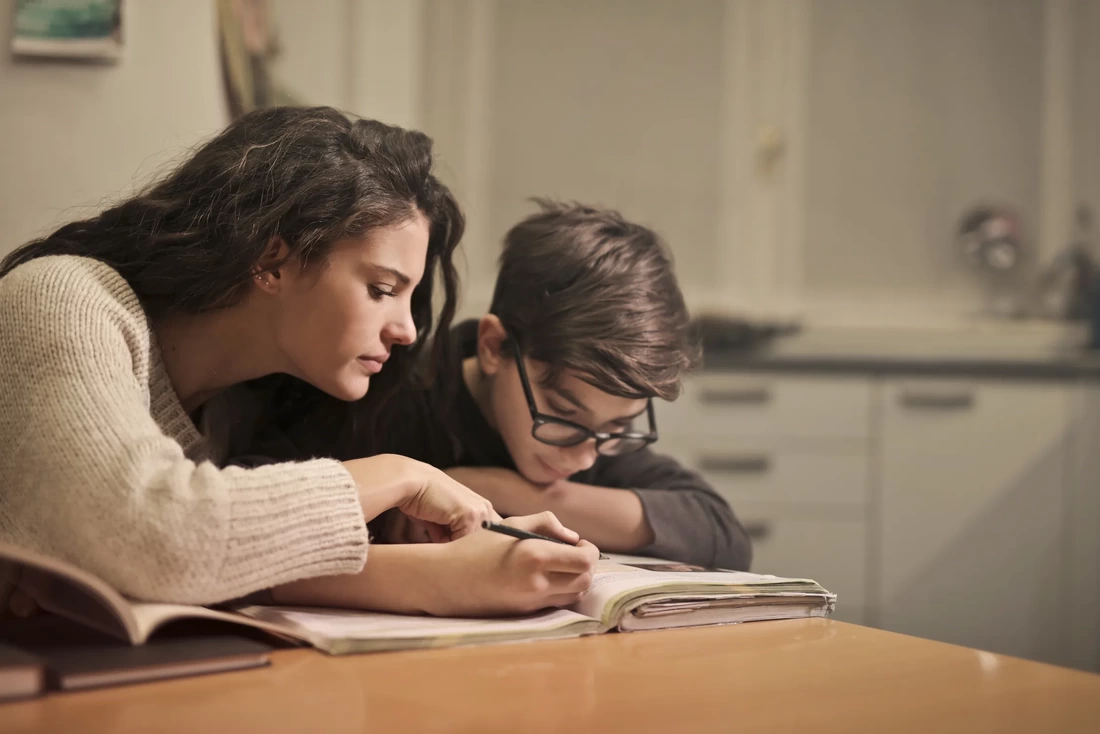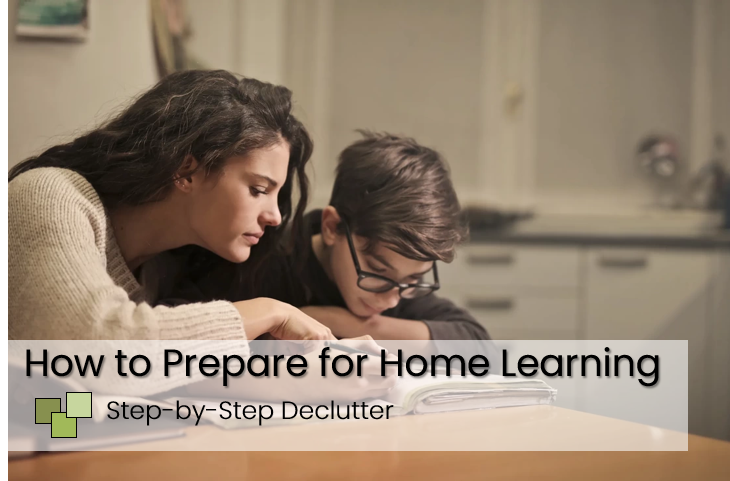|
|
|
As the start of a new school year approaches, many parents are holding their breath, waiting to learn whether or not their school district will resume face to face classes. Some are anxious about sending their kids to school with the COVID-19 virus still raging. Others are anxious at the prospect of having to school their kids from home. No matter where you fall on the spectrum, there's a good chance you're feeling some amount of stress with regard to your kid's schooling. With that in mind, it's a good idea to be ready to oversee your children's education, no matter what the plan is for your school district, as a spike in cases could easily lead to another shut down.
We home-schooled our kids for seven years. Thankfully, homeschooling was an intentional choice for us and not something that was forced upon us suddenly by an unforeseen event beyond our control. That said, it was still a bit overwhelming at first. We learned as we went along, and I look back on the experience with great fondness. For me, homeschooling four kids was a full-time job. These days many families can't afford to have one parent at home full-time. That means managing work demands (possibly from home) in addition to all the other responsibilities you may be juggling. I learned quickly that the more organized I was, the easier it was to stay on top of things. Below you'll find a list of things that I did to get organized for home learning. I hope they will be helpful to you as you take on the added responsibility of overseeing your child's education.
,It's important to have a dedicated space for home learning. Your kids will try to argue otherwise. They will say that they can work just fine sprawled out on the floor, lying on their bed, or in any number of recumbent positions around the house. That may be what they want, but it is not the most ideal posture or place for dedicated mental effort. You may think a desk in their room is a good solution. To a degree it can work in certain circumstances and for certain children, but in my experience it is not the best solution. Children's bedrooms are often filled with distractions which can easily submarine their ability to remain focused and on task. In addition, most school work beyond the early elementary level is done on a tablet or computer these days. These devices are themselves instruments of distraction. It's best to have the kids where you can easily supervise their efforts. That doesn't mean they can't spread out and work in different locations on different assignments, but there should be a space dedicated to 'sit down', supervised work. Since most of us do not have a spare room we can convert into our personal schoolhouse, you will most likely need to designate a space within a space for your learning adventures. The ideal school space will include:
Obviously, the more children you have, the more work and storage space you will need. While you may find it best to separate your kids so they don't distract each other, especially when they are working independently, that won't negate the need for a home school home base.
Your children will have preconceived notions about what school should be like. They will probably also have a conception of home as a place to hang out, play, relax, etc. It may be an uphill battle at first getting them to "do school" at home. One thing you can do to help lessen the friction of the transition is to establish and enforce expectations. I recommend a family council in which you establish these expectations with the help of your children. Consider this basic format for your discussion:
When the kids are home all day every day it can be tempting to just do things when you get around to them, but it's important to establish a schedule and stick to it as best you can. The more regimented your routine, the more likely your kids will adapt to it favorably. One of the up sides of doing school at home is that you can create a schedule that works best for you and your family. In our family, that meant starting school each day at 9:00 am. There was no need to start earlier, and waiting until 9:00 gave me time to have a personal devotional, exercise, shower, fix a good breakfast for everyone, and clean up the breakfast dishes - all things I knew would be important for my personal sanity. It also meant I never had to wake my kids up for school. They could sleep as long as they needed to and still be ready in plenty of time for the start of the school day. As you prepare a school schedule for home learning, think about what matters most to you and your family. Include regular breaks for you and your kids. Think about when you and they are at your best and schedule the most rigorous part of the learning day to coincide. Are your kids fresh and raring to go first thing but sluggish after lunch? Or do they take a while to get going in the morning? In our case, we focused on core subjects and seated work before lunch and left the afternoon for hands on, project oriented subjects like science, art, and social studies. Another bonus of homeschooling is that it often does not take as large a chunk of the day as traditional classroom learning. Transitions are swifter, instructions tend to be less tedious, and kids can work at their own pace.
If you are working from home or outside the home, that will obviously impact your availability to oversee your children's' learning. Talk to your boss about adjusting your schedule if needed. Chances are he or she may be knee deep in supervising home learning as well and thus understand. Perhaps you could go in later or get off earlier or some combination of the two. If you're working from home, see if you can schedule your work hours outside the time frame when your kids are most focused and cooperative.
I don't have to tell you that you need a break, but you may need a reminder that it's OK to take one. Not only is it OK, it's essential. When your kids are home all day every day, you need a break from each other. They need time to pursue their own interests, and you need time to recharge and 'get things done'. Whether you are working while homeschooling or homeschooling full time (still a difficult job), you need to find time every day for you - time to put your feet up and do something you enjoy, if only for a few minutes. Doing so will add to your success and well-being.
Having kids home all the time means the house gets even messier. Homeschooling is a great opportunity to teach your kids some life skills and responsibility. When we made the decision to homeschool our kids, we made the decision to put them to work. They had chore charts with simple jobs before we began, but once we started homeschooling those things became a part of our curriculum. We started by identifying skills we wanted them to develop and determining what jobs were most realistic for each of our kids based on their ages. Then we started a concerted campaign to teach them to work.
One of the things that intimidates many parents when in comes to homeschooling is their own sense of inadequacy in one or more subject areas. These days parents have an abundance of excellent educational resources at their fingertips to help lesson the teaching burden and enhance learning for their children. Here are just a few examples of the kinds of resources you can harness as a home educator:
Another excellent way to make use of technology for learning is through utilizing family and friends. This can be done in person or virtually through video conferencing applications like Zoom or Cisco . If you're not great at science or math or some other subject, think about friends, neighbors, and members of your extended family who may excel in areas where you struggle. Then recruit them to work with your child in their area of expertise. Chances are they would love to help, especially if they don't have kids at home. Another option is to trade teaching with friends. When we were homeschooling, I taught a basic core curriculum to a family of refugees preparing to immigrate to an English speaking country and the father, who was a microbiologist and fluent English speaker, taught biology to my high schooler with enthusiasm and gusto. It was a great trade!
If homeschooling is being thrust upon you, it can be tempting to dwell on the down side of the situation, but there are many potential benefits of homeschooling. These include:
Whatever your personal educational choice for your children may be, I hope this has given you the confidence to trust yourself should you be called upon to take charge of your child's learning. I believe in your ability to succeed! I also believe that homeschooling can be a blessing for both parents and children.
18 Comments
8/3/2020 08:42:26 am
You and I are on the same page this week! Time to gear up for school, whatever form it may take. I love that we have so many points in common:)
Reply
8/3/2020 09:02:42 am
I guess it’s true what they say - great minds think alike. 😂 I feel like I’m in excellent company.
Reply
8/3/2020 08:50:41 am
I love the way you traded with another family. Doing that helps everyone succeed. I also love the motto: do it nice or do it twice. That can work in so many situations.
Reply
8/3/2020 09:06:46 am
It did work out very well, and it was nice for the kids. Another time we had a neighbor who was a doctor. He taught science to my kids, and I did art with his kids. I definitely got the better end of the deal in that instance! As for the motto, it is rather universal, and, I think, an important lesson. It makes me glad when I hear my grown children say it.
Reply
8/3/2020 08:59:16 am
This is a difficult time for everyone but I especially feel for parents who must decide what is best for their kids. You've offered some excellent tips to help with home learning, whether it's by choice or necessity.
Reply
8/3/2020 09:47:06 am
I LOVE the idea of including chores (and other skills not necessarily taught in school) in the home learning curriculum!
Reply
8/4/2020 05:48:22 pm
Thanks, Hazel. I really believe life skills are an important part of a child's education, and I love the freedom of homeschooling to focus on individual interests as well. When my son was a cub scout he earned nearly every pin and belt loop imaginable because we incorporated the requirements into our homeschool curriculum. It was fun, and we both learned a lot!
Reply
8/3/2020 09:59:27 am
Your calm demeanor and confidence comes through. And right now, I'm sure ALL parents would benefit from reading your advice. The fact that you have four children that you've home schooled makes you an immediate expert.
Reply
8/4/2020 05:49:40 pm
Thanks, Linda. I appreciate your comments. That's an interesting idea! I'll definitely give it some thought.
Reply
8/3/2020 10:48:03 am
Great thorough post! I did not homeschool my kids but all your tips are super helpful even when the kids are doing homework after school. The area for study must be less distracting and more motivating. Having a stiff neck does limit your focus so rotating through different areas of the home may be essential for your child. Thanks for sharing.
Reply
8/3/2020 10:57:59 am
Thanks, Sabrina! I agree that it’s good to have a change of scenery. When we were homeschooling, I would work one on one with one child at “the school table”, one child would work independently in the location of there choice (so long as it was sensible and they could focus), and one child would be responsible for entertaining the toddler, and they would rotate. They were always encouraged to choose a comfy place to read, even outside if the weather was nice. It was good to have a routine that allowed for flexibility.
Reply
8/3/2020 05:40:55 pm
Thanks, Melanie! I appreciate your comments so much. I’m glad you found the post helpful.
Reply
Angie Hyche
8/3/2020 04:07:53 pm
This is so well-written and thorough! My favorite sections were about meeting as a family to make a plan and parent recess. Looking forward to sharing with my readers as well!
Reply
8/3/2020 05:42:49 pm
Thanks, Angie! Those are my favorite sections as well. Thanks for sharing!
Reply
1/20/2021 10:49:51 pm
I liked it when you shared that homeschooling offers parents the chance to be actively involved in the child's education. My friend just mentioned the other day that she is thinking of homeschooling her son since she no longer works and she wants to ensure that her son will receive the best education in his lifetime. I will suggest to her getting some educational crossword puzzles to be incorporated into her son's learning.
Reply
1/21/2021 06:46:14 am
Thanks, Taylor. It’s good of you to share resources and suggestions with your friend. I know schools and educators are making every effort to give kids the best experience possible amid concerns over the pandemic, but a lot of kids are struggling with new learning models. I hope your friend finds ways to supplement her son’s education that work well for him and most of all, I hope they both enjoy the experience!
Reply
Leave a Reply. |
Archives
November 2022
Categories
All
|
Proudly powered by Weebly







 RSS Feed
RSS Feed